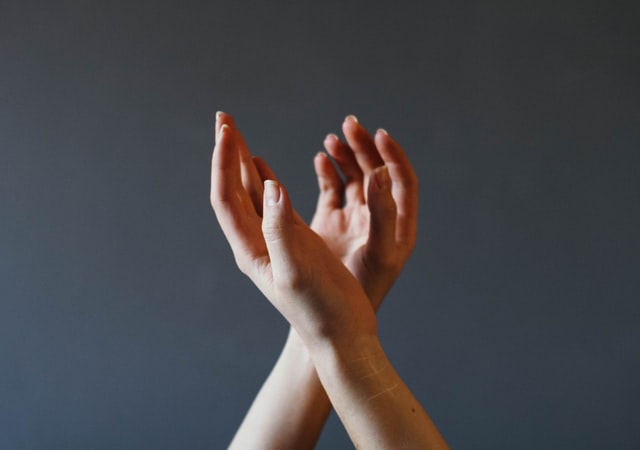What is masculine energy?
As a guy, the question of what ‘man’ means to me is not a new one. I’ve been asked this question a lot of times, and I’ll try to explain what it means to me and what I think it means for guys everywhere.
The good news is that I think most people are pretty much on the same page as where I’m coming from, so we can use this conversation as a jumping off point for deeper discussion.
The first thing people will probably notice about my definition is that it’s not very traditional. In other words, it’s not a gender-specific term or anything like that. It’s not about being male-ish or female-ish (though there is overlap between the two). It’s about having masculine energy in your life, whether you are male or female, straight or bi-, queer or genderqueer…and in any combination thereof.
I’m going to start by defining masculine energy:
1) Masculine Energy—This refers to how your energy feels when you’re doing something with an intention and focus; when you’re motivated by goals, plans and drive; when you want to feel like you’re making real progress towards achieving something significant. This kind of energy feels different than the more traditionally feminine ‘energy’ that comes from feeling happy — which happens equally often in both genders — and other feelings like excitement (which happens more often in men than women).
2) Masculine Energy—This refers to how your energy feels when you aren’t doing anything with an intention/focus/motivation; when you are just generally feeling good — no goals, plans or drive behind it — or other feelings like relaxation (which happens more frequently in women than men). This isn’t necessarily about being feminine either because there are many things that most people experience as feminine (i.e., feeling excited) that can also be experienced as masculine (i.e., feeling relaxed).
3) Masculine Energy—This refers to how your energy feels when someone else does something for you; when someone else shows up for you at work without asking; when someone else asks if they can do something for you without asking; etc… This type of energy is often associated with romantic relationships but it doesn’t have anything to do with ones who are dating each other (or even those who aren’t dating each other yet). It’s also not limited to romantic relationships though. Allies/partners/friends can still contribute masculine
How to be masculine in a relationship.
When you’re in a relationship, you will find that your romantic partner is also masculine and feminine. But there is a time to be masculine and a time to be feminine. This can vary from one person (or one relationship) to the next.
The problem is that the timing of this is all too often out of your control. The best way to have the most fun in relationships, then, is to find out when it’s appropriate for you to be masculine and when it’s not.
That’s where communication comes into play: in each other’s lives, we need to be able to know what our partners want or need — and then let them know what they want or need so that we don’t have conflict or misunderstanding.
The benefits of being masculine in a relationship.
Masculinity has been well-defined in psychological research as the part of you that’s focused more on action than on being. It’s about doing rather than about being. This can make it hard to be masculine in a relationship. If you’re in a relationship where one partner is aggressive, assertive, and goal-directed, then this makes the other person less so. For example, if your partner is the type who tries to take over every conversation (rather than talking at a conversational pace) and you’re the type who responds to what they say with a response (rather than letting them take control), then it may feel like you have to be aggressive and assertive yourself to get what you want from your relationship.
But if your partner is the type who’s not aggressive and doesn’t push back or react quickly to things, then this may feel freeing — like you’re able to respond more freely because there are no expectations that you’ll be “nice” or “play fair”.
In other words, approaching masculinity in a relationship doesn’t need to be about how much aggression or assertiveness you expect from your partner from one moment to another — it can also be about how masculine their interaction style is over time: are they slow, do they talk fast? Do they become more aggressive as time goes on?
The same goes for masculinity regarding relationships with other people: if your partner isn’t friendly, slapping someone when they’re angry can seem alienating; but if their approach is friendly even as anger rises up within them, then it’s not so alienating (and maybe even helpful). This process of working through masculinity takes time — time that some people may not have.
How to overcome the challenges of being masculine in a relationship.
There are a lot of articles about “how to be masculine in a relationship”. I’ve written about it in the past, but I thought it best to write another post on this topic because – well – we’re talking about dating here.
If you have ever been in a relationship (and if you haven’t, please do so before reading any further), you probably know that there is a lot of talk about being masculine and feminine. You’re told:
You can’t be feminine and masculine at the same time. It will make things confusing. More importantly, it can make things terrible. Some women are feminine and some men are masculine, and the two don’t work well together.
And people will tell you that they don’t want two men or two women in their life; they just want one man or one woman who is feminine (or even just one man or woman). These statements may be true for some people (once upon a time I was told “all men are like this” – which was completely untrue), but if you’re in an open relationship then chances are your day-to-day interactions with your partner will be defined by who she wants to see/do more of/who she doesn’t want to see/do less of. And unless you have some very specific ideas about what kinds of behaviour from your partner you would like to see more of/less of, chances are there won’t be anything we can do about whether your partners prefer the “masculine” side or not!
These ideas around being “masculine” carry over into social situations as well: try saying something like “I’m not interested in sex as much as I think we could have fun doing it together” when someone is interested in having sex with you (and when they say they aren’t interested, think again!) – they might get defensive!
But let’s take these ideas seriously for a second – because if we start applying them to politics or other areas where differing opinions might matter, we risk losing the whole point. Instead try this: Be bolder than those who expect both sides of your personality to work together, and go for what gives you joy – even if it means being vulnerable for the first time ever! If something doesn’t feel right…well then move on – there is no shame in moving on from someone who isn’t doing well enough for us…just don
The importance of masculine energy in relationships.
I’ve been in relationships where one of the partners was feminine and the other was masculine, and it’s always interesting to see how the relationship changes when one partner becomes more masculine. For example, I remember being in a relationship with someone who was very masculine in a lot of ways and whose primary goal was to get into my pants. We were best friends, we loved each other deeply, and we were both really strong people. So it’s not just that he was more masculine than me — it was that he wanted to be more masculine than me. He wanted to be a man; he wanted to be tall and handsome; he wanted to be sexually active and sexually attracted to women (he didn’t want me — but I did).
In contrast, I remember someone who wasn’t very masculine at all: he didn’t care about sex or getting into my pants; instead his goal was just to get along with me, share intimate details of his life, talk about things that interested us both, etc. He wasn’t interested in being taller or more athletic or having more sexual experiences — he just wanted me to like him. And I remember thinking that doing that meant becoming less feminine than myself so that I could be attracted to him.
The most important thing I’ve learned from those experiences is:
• It’s not the gender of the person, but their goals and desires in life which matter most.
• People are stronger-willed when they have their own goals for their lives; when they have goals for themselves — not for others!
I hope no one ever feels as if they need to convince you of this! 🙂


